Key Takeaways
Scaling an Airbnb business requires systems that reduce manual workload and increase operational visibility across multiple listings.
Growing your Airbnb portfolio means shifting from reactive hosting to proactive asset management.
Tools for automation, revenue optimization, and team coordination are critical for staying competitive at scale.
The number of multi-property Airbnb hosts has grown sharply in recent years, with AirDNA reporting that professional hosts now control more than 30% of listings worldwide.
Scaling is the next step many hosts take, but that step brings more than just extra income. It introduces more guest expectations, more turnovers, and more chances for something to slip through the cracks.
Scaling a short-term rental business looks very different than running one or two units. You can’t rely on memory or spreadsheets anymore. Manual guest messages, last-minute cleanings, and ad hoc pricing updates don’t hold up when you’re managing six, ten, or fifty listings. Without structure, growth bottlenecks fast.
This guide outlines seven specific strategies to scale your Airbnb business without losing operational control. From automation and pricing data to team structure and financial discipline, these are the not-so-secret levers that help professional hosts grow without burning out.
Let's get into it!
Strategy 1: Standardise Your Guest Experience
Scaling an Airbnb business gets messy fast without a consistent guest experience. What works fine with two listings starts breaking down around property number six.
When every listing runs on the same system, you stop solving the same problems over and over. Guests get the same experience, no matter which property they book. That consistency builds trust and faster 5-star reviews.
Create a repeatable check-in and check-out flow
Reliable check-in and check-out instructions save time and prevent complaints. Whether using smart locks, lockboxes, or physical keys, document the steps clearly.
Then schedule those instructions to send automatically before and after each stay. No more “Where do I find the code?” messages at midnight.
Check-out reminders should include time, cleaning expectations, and how to leave the property. When everyone knows what to do, there’s no room for confusion. Cleaners don’t wait around. Guests don’t feel rushed. Turnovers move faster, with fewer surprises.
Use checklists to reduce friction and errors
Guesswork slows everything down. Instead, give your team step-by-step checklists they can follow without second-guessing.
Use templates for:
Cleaning: Break down tasks room by room.
Restocking: List exact quantities and locations they need to be in.
Maintenance checks: Include quick hits, such as test smoke alarms, replace dead bulbs, tighten loose knobs.
Standardising guest touchpoints creates a system that works at scale, one that keeps guests happy and your operations smooth.
Enjoy the confidence & focus you need to scale your vacation rental business
Book more while doing less
With a reliable VRM solution you can trust, Uplisting can help you grow your business without wasting time on double bookings, unhappy guests, upset clients and worrying what could go wrong next.
Strategy 2: Automate Key Workflows
Adding more listings means adding more moving parts. Workflow automation keeps everything moving without you having to micromanage every detail.
Scheduled messages keep guest communication tight
Guests expect fast, clear communication, whether you’re online or not.
Pre-scheduled messages take care of the routine updates without requiring your attention every time. That saves hours each week and keeps the experience consistent across every property.
Set messages based on booking or arrival times. For example, send house rules right after confirmation, arrival details 24 hours before check-in, and a thank-you note the morning after departure. Preloading this communication means fewer repetitive questions and smoother stays.
Dynamic pricing tools protect your RevPAR
Adjusting rates manually across multiple calendars drains time and often leads to underpriced nights or missed bookings.
Automated pricing tools update rates based on demand, seasonality, pacing, and gaps in your calendar. They also flag underperforming listings, helping you make smarter decisions without constantly checking comps.
Instead of making pricing decisions based on gut instinct, automated tools respond to what’s actually happening in the market. Your listings stay competitive, and you get more bookings at higher rates without babysitting your calendar.
Use a PMS to manage calendars and channels
Managing properties across Airbnb, Vrbo, and direct booking sites without a central system quickly turns into a mess.
A property management system (PMS) pulls all your listings into one calendar, blocks double bookings, and organizes daily workflows all in one place.
Without a PMS, you're switching between platforms, copying updates by hand, and hoping no one double-books the same weekend. With one, you can see every reservation, guest conversation, and task across your portfolio in minutes. That clarity gives you the breathing room to grow without more chaos.
Strategy 3: Build a Reliable Team
At a certain point, growth depends less on what you manage directly and more on who you trust to handle the day-to-day without dropping the ball.
Cleaners set the tone the moment a guest walks in. You need people who arrive on time, follow a specific checklist, and flag problems before guests do. Pair cleaning schedules with automated notifications and give your team property-specific notes, photos, and task lists. Removing guesswork means fewer mistakes and faster turnovers.
Maintenance contacts are your safety net when things break... Because eventually, something always does. A leaky faucet or broken AC unit can tank a review if it’s not fixed quickly. You don’t need someone on payroll, but you do need a go-to person who picks up the phone and shows up. Build that relationship early, before you need it.
Co-hosts are especially useful when managing listings in different cities or scaling beyond what you can handle alone. A good co-host acts like an extension of you, handling guest issues, coordinating cleanings, and stepping in when you're not available.
To keep everything running smoothly, set clear ground rules for each role:
Availability: Define expected response times and working hours ahead of time.
Communication: Decide how updates should come in—texts, shared docs, photos, or checklists.
Feedback loops: Make it easy for team members to report damage, flag issues, or suggest improvements without bottlenecks.
Accountability: Use timestamps, checklists, and regular reviews to keep quality high without hovering.

You’re in great company
Sign up
Some of the largest short-term rental operators (with 250+ properties) rely on Uplisting's software to scale their businesses.
Strategy 4: Optimise Pricing with Data
Pricing is where profit either grows or disappears. Set rates too low, and revenue shrinks. Go too high, and nights sit empty. With multiple listings, small pricing mistakes multiply fast. Data gives you the edge to stay sharp and stay booked.
Use market data to guide price decisions
Copying competitor rates or sticking to flat pricing won't cut it.
Tools like AirDNA and dynamic pricing platforms update in real time, pulling in actual booking trends, average daily rates, and occupancy shifts across your comp set. You can see how far out guests are booking, how your listings stack up in RevPAR, and where gaps are forming.
When bookings fill too early, your rate is likely too low. When calendars stay open while similar listings are booked, prices are probably off. Running reports weekly (not monthly) keeps your pricing decisions fast and relevant.
Make seasonal and event-based adjustments
Rates should move with the calendar. That means more than just bumping up prices for holidays. Local events, school breaks, and weather swings all shift demand, sometimes with little notice. A music festival announced two weeks out can pack an entire city. If pricing doesn’t adjust quickly, revenue gets left behind.
Set longer minimum stays during peak periods to reduce turnover and increase average booking value. Shorten minimums when demand dips to keep calendars filled and cleaners working. Flexibility keeps revenue steady, even when demand changes.
Find your balance between occupancy and rate
Higher rates don’t always mean better outcomes. The goal is to earn more without creating extra work or risking long vacancies.
High occupancy, low rate: Helps grow reviews and search visibility, but increases wear and tear and stretches your team thin.
High rate, low occupancy: Works for high-end listings during peak season, but hurts your ranking and cash flow when demand softens.
Balanced approach: Adjust rates to protect weekends and holidays, then offer short-notice deals or midweek discounts to fill gaps without devaluing your listing.
Scaling an Airbnb business means taking pricing seriously—not just to stay competitive, but to stay profitable over time. With the right data, every rate change becomes a confident decision instead of a guess.
Strategy 5: Strengthen Your Marketing Beyond Airbnb
Leaning too heavily on one platform is a fast way to limit growth. A single channel controls visibility, fees, and messaging rules. If a listing drops in search or an account gets flagged, reservations can vanish without warning.
When scaling an Airbnb business, adding more properties without adding more control over your marketing creates unnecessary risk. Spreading visibility across different channels gives you breathing room and keeps bookings steady even when one source slows down.
Build a direct booking site that actually works
A direct site lets you control how your brand looks, how pricing works, and how guests book, without paying commission. But a site that just looks nice won’t help if guests can’t find what they need or book quickly.
Design for mobile first. Guests often book from phones, not desktops. Clear booking buttons, fast load times, and simple navigation matter more than clever copy or flashy design. Let visitors search availability, check prices, and book in under a minute.
Use guest reviews, pro photos, and clear policies to build trust. Include local tips, highlight exclusive perks, and keep the tone as approachable as your listings. Add a form to collect emails, offering a rebooking discount or early access to peak dates gives past guests a reason to stay on your radar.
Keep past guests in the loop
Social media turns one-time guests into repeat visitors.
Use platforms like Instagram or Facebook to show what’s new, like renovations, seasonal decor, local events, or anything that makes a stay more appealing. Don’t just post photos. Share short stories, respond to comments, and use DMs to answer questions and keep conversations going.
Email works even better. A quick message with a return-guest discount or an early booking window often brings them back, especially if it lands before a holiday or school break.
List on more than one platform
Airbnb brings in steady traffic, but it doesn’t catch every traveler. Vrbo often attracts families and longer vacations. Booking.com pulls in international guests, business travelers, and folks who book through hotel-style channels. Listing across platforms fills more dates and reaches different types of travelers without changing your properties.
Use a property management system to sync calendars, messages, and pricing so you don’t double-book or miss guest questions. The setup takes time. But once it’s running, your listings stay competitive on every channel, without creating more work.
Save yourself from your inbox
Automate with Uplisting
Automated guest messages keep your guest informed from booking through to check-out. They’re designed to answer questions before they arise, saving you time whilst keeping your guests happy.
Strategy 6: Manage Finances Like a Business
Running multiple listings without clear financial systems is like managing turnovers without a checklist. Treat your finances like a business from day one and you'll be ready to grow.
Track income and expenses per property
Grouping all earnings into one account makes it hard to spot which listings are profitable and which ones are draining resources.
Keep a separate ledger for each listing. Track:
Revenue from each booking channel
Cleaning and turnover costs
Ongoing repairs and one-off fixes
Utility bills and recurring subscriptions
Insurance, licensing, and permit fees tied to the property
Use software or spreadsheets that tag every transaction by listing. That way, there’s no scrambling during tax time or guessing when a stakeholder asks for a breakdown.
Clear reporting shows where to reinvest, where to cut back, and which listings deserve more attention. When one unit consistently drags down margins, you’ll see it quickly and adjust before it hurts the entire portfolio.
Budget for maintenance and upgrades
Scrambling to fix issues during a guest stay is expensive, stressful, and easily avoidable. Ignoring small repairs often leads to bigger ones later, and unhappy guests in the meantime.
Set aside a fixed percentage of monthly revenue (3 to 5% works for most properties) to cover inevitable maintenance. Use a separate budget for improvements like new appliances, fresh paint, or higher-end bedding. If you want to raise rates or attract longer stays, the space needs to match the price.
Keep an eye on how often each property needs repairs. If one eats up more maintenance hours or costs than others, it may need a full refresh, or a second look at whether it still fits the goals for your portfolio.
Understand tax impact across multiple properties
Managing taxes across more than a few listings gets complicated fast. The right tax advisor can make a huge difference. They can help you sort out:
What qualifies as a deductible expense—everything from linens to software
How to handle upgrades vs. repairs
Depreciation schedules for furniture and fixtures
Whether an LLC or S-corp makes sense for your setup
Local occupancy taxes, licensing, and reporting requirements
Some cities also require separate permits, quarterly filings, or nightly tax collection. Missing those deadlines creates headaches fast and in some cases, fines that eat into revenue.
Strategy 7: Protect Your Time and Energy
Scaling an Airbnb business adds more than new bookings—it adds nonstop decisions, constant pings, and pressure from every direction. When every task depends on you, even small issues turn into major distractions.
Know when to step back
Still chasing down cleaners, answering every message, and adjusting prices by hand?
That’s not efficiency; it’s overload. Once you’re managing six or more listings, daily tasks start piling up faster than you can clear them. Build a system that runs whether you're watching or not. If your business stops when you take a day off, it’s not built to grow.
Focus on high-leverage work
Some tasks move everything forward. Others just keep the lights on. If your calendar is packed with follow-ups and last-minute decisions, you’re stuck in maintenance mode.
Make space for work that actually grows your business: adding new listings, improving pricing strategy, building partnerships, and tracking performance. Every time a repeat problem shows up, fix it once, then document the fix or automate it.
Treat your calendar like a business tool
Back-to-back calls, scattered priorities, and constant task switching drain your energy and delay decisions.
Block time every week for deep focus. Put strategy, planning, and review work on the calendar like you would a meeting, then protect it. Use a virtual assistant to filter low-value requests. Create message templates for common questions. Keep your week clean enough to think clearly.
Create 5-star guest experiences
Give your guests unforgettable experiences
With Uplisting, you can send the right messages at the right time on all booking sites. Read and respond to guest messages in a single, unified inbox — whether you’re at the office or on the go.
Your Secret Weapon to Scaling: Meet Uplisting
The number of multi-property Airbnb hosts has grown sharply in recent years, showing that scaling isn’t rare; it’s the next step many hosts take. However, without the right systems and support in place, growth can mean more stress, burnout, and risk to your reputation.
We’ve covered the seven strategies that help hosts scale with confidence, from automating workflows and standardizing operations to building a reliable team and using data to drive decisions. The difference between struggling to keep up and growing with control comes down to how well your systems support your scale.
If you're ready to grow your short-term rental business without sacrificing time or guest satisfaction, sign up for Uplisting to streamline your vacation rental management.
FAQs About Scaling an Airbnb Business
What is the 80/20 rule for Airbnb?
The 80/20 rule (also called the Pareto Principle) shows up clearly in short-term rental portfolios. Around 20% of listings usually bring in 80% of total revenue.
These high-performers often sit in better locations, attract stronger reviews, or stay booked year-round. When you focus on top listings with targeted pricing, small upgrades, and better guest experiences, profits grow faster without adding more work across the board.
Why do some people stop using Airbnb?
Hosts often walk away when bookings drop, margins shrink, or operations turn chaotic. Increased competition, shifting guest expectations, and stricter local rules can squeeze out what used to work.
Without strong systems in place, even experienced operators can burn out or lose control of the guest experience. Property managers who streamline communication, pricing, and turnover workflows stay flexible and ready to adjust when the market changes.
How does scaling differ from starting an Airbnb?
Starting up usually means hands-on work, including buying furniture, picking out paint, writing a listing from scratch.
Scaling flips the model. You build systems that handle guest messages, automate pricing, and keep your calendar in sync without checking it ten times a day.
The bottom line is that growth depends less on daily effort and more on how well your tools, processes, and team support the listings you already have and the next ones you plan to add.




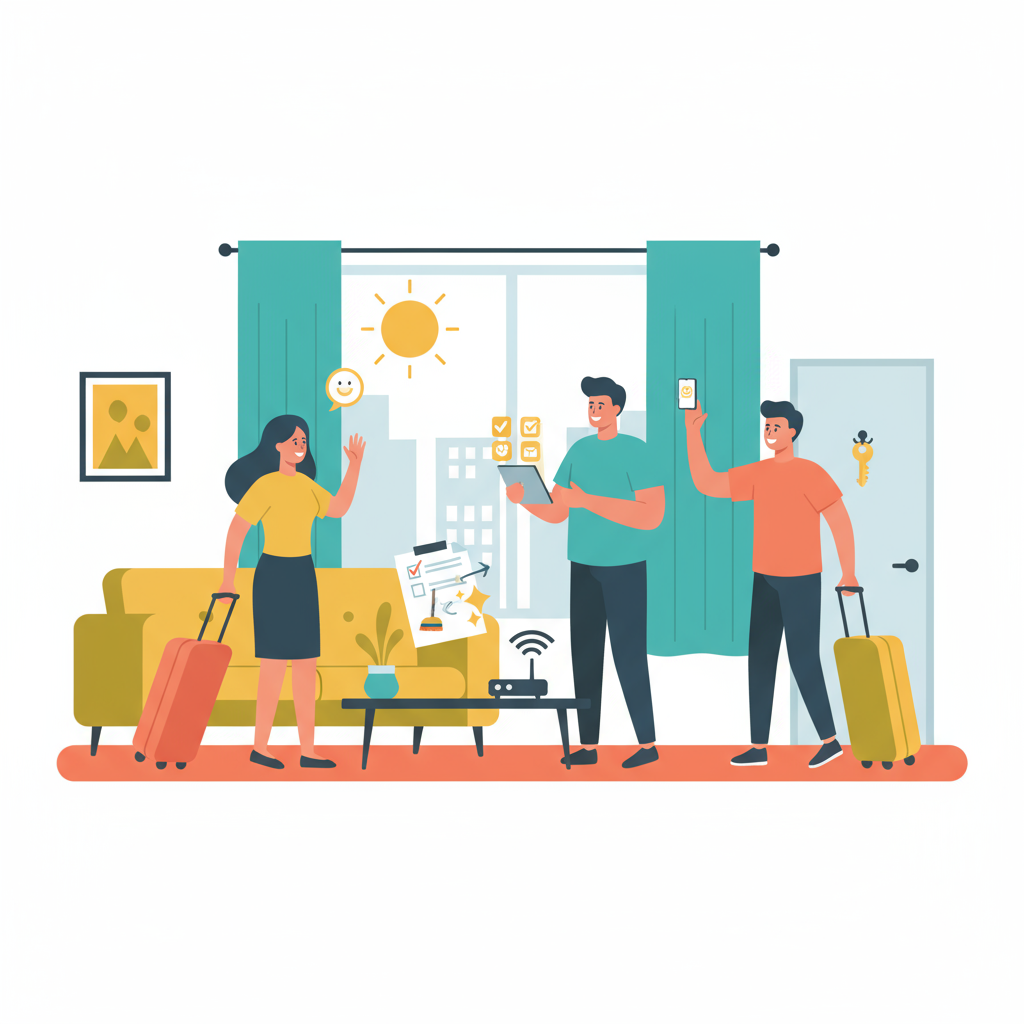
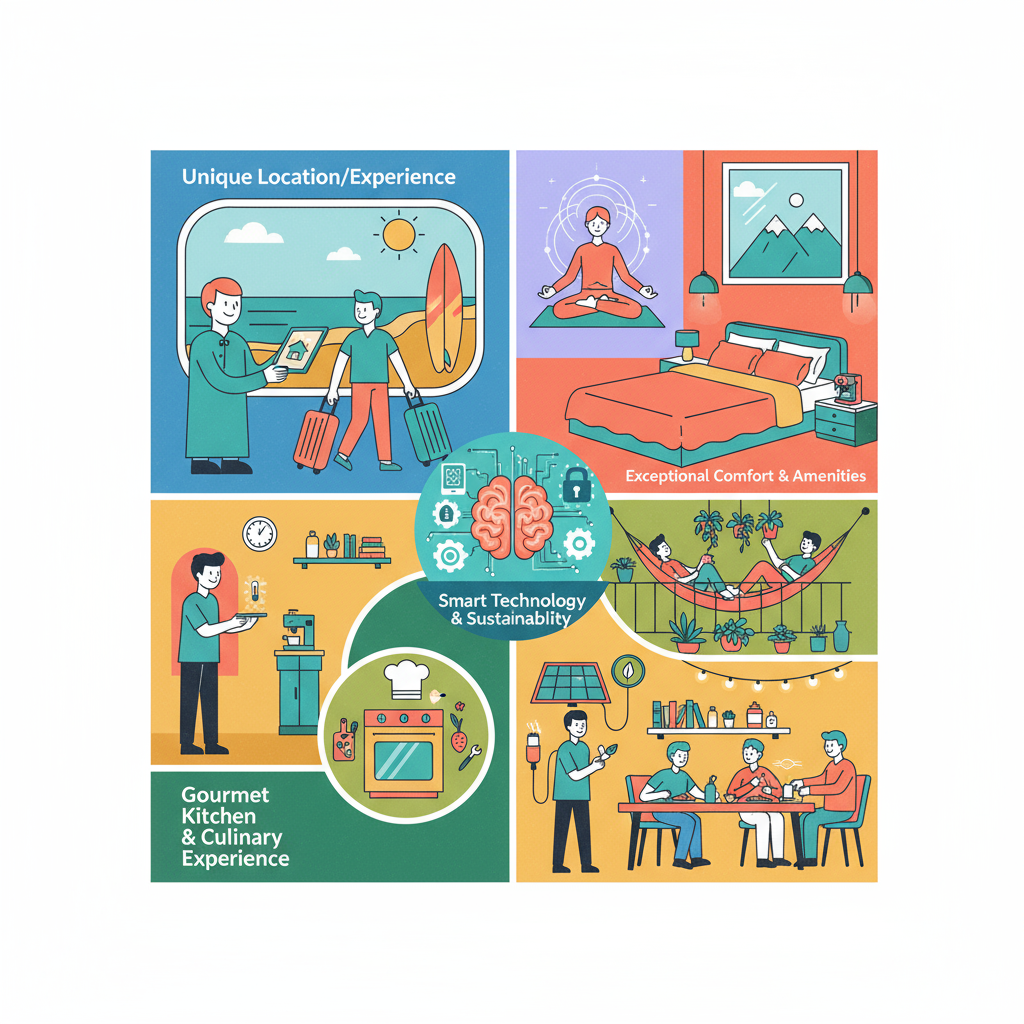




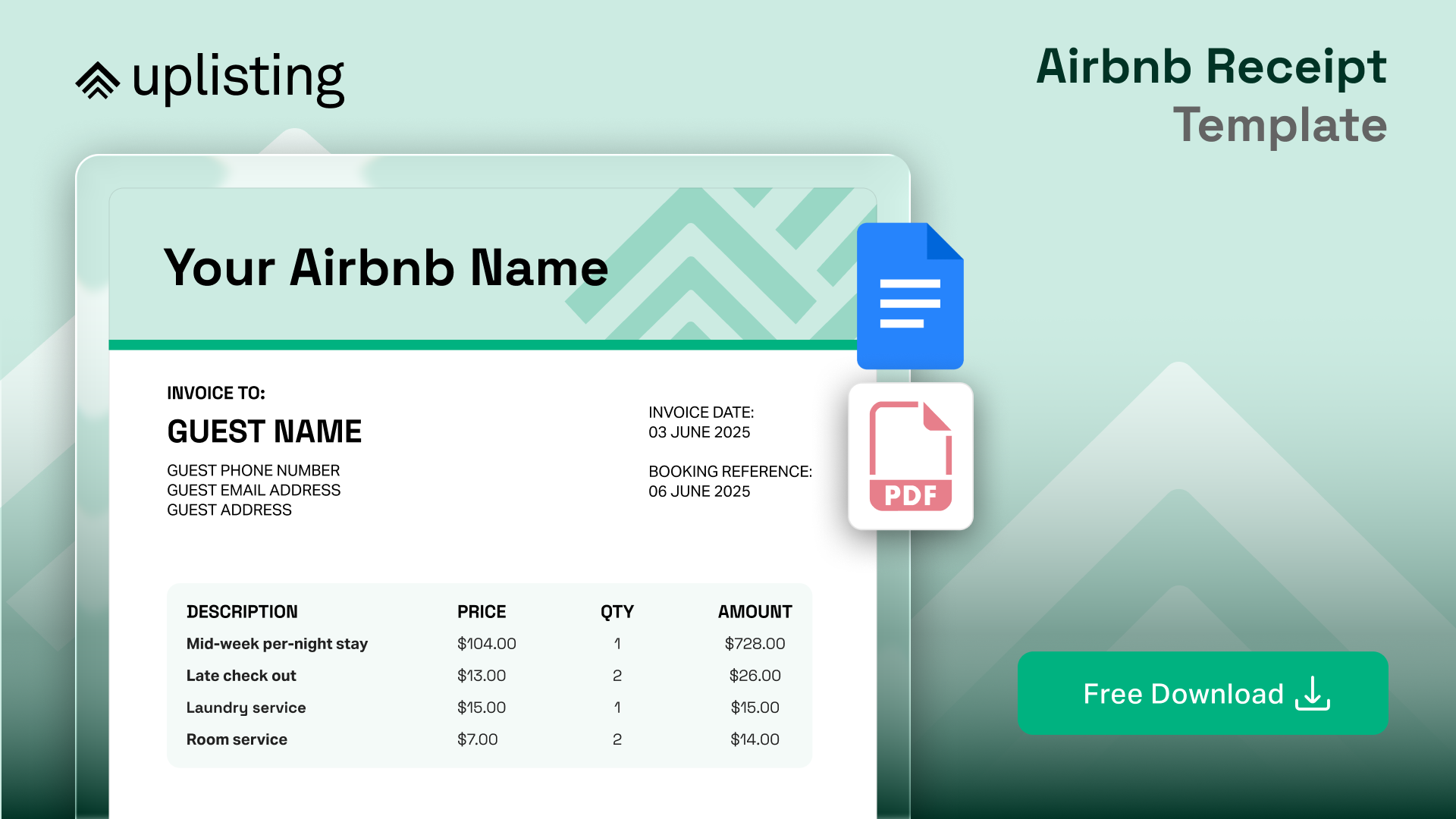

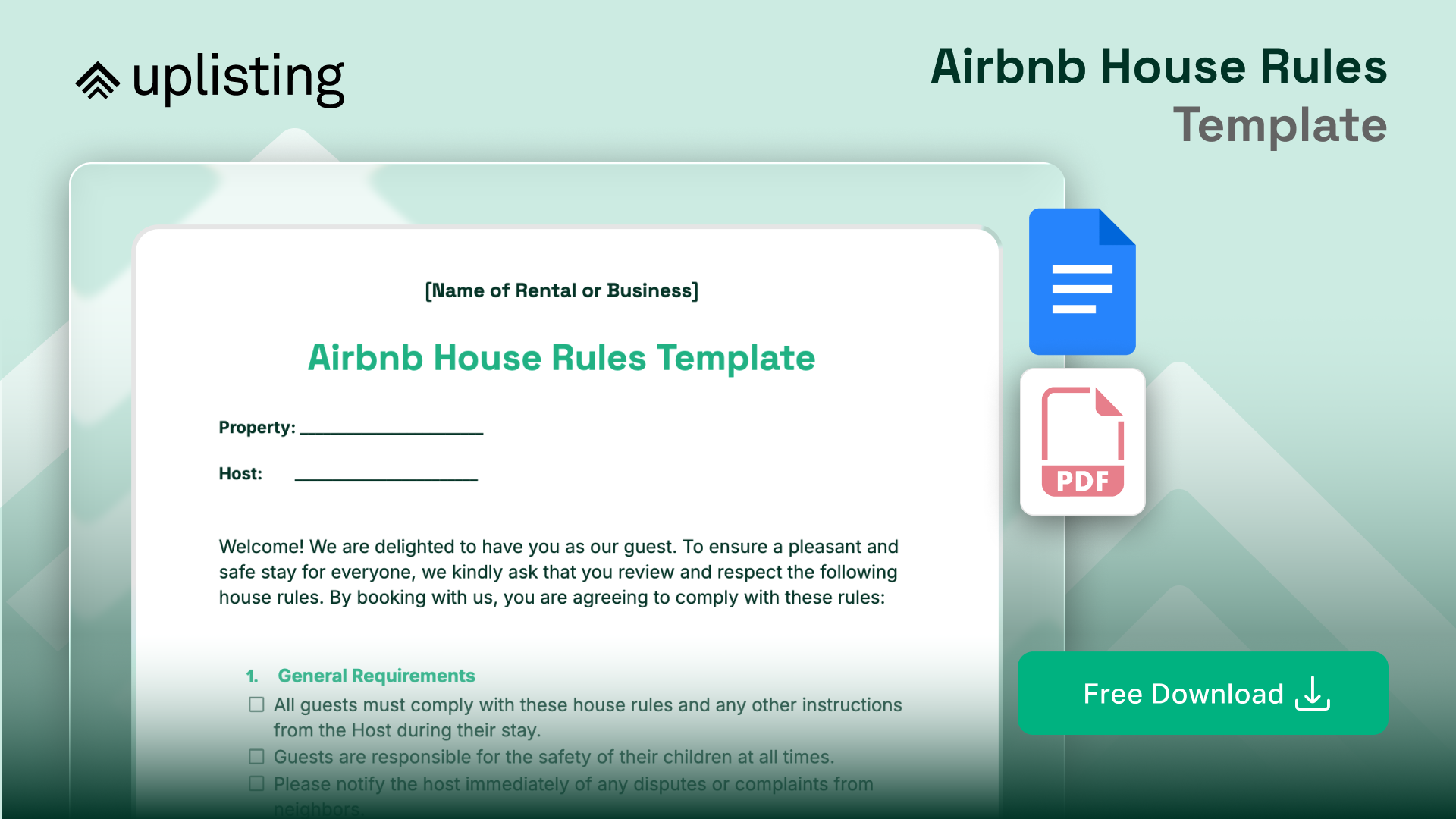

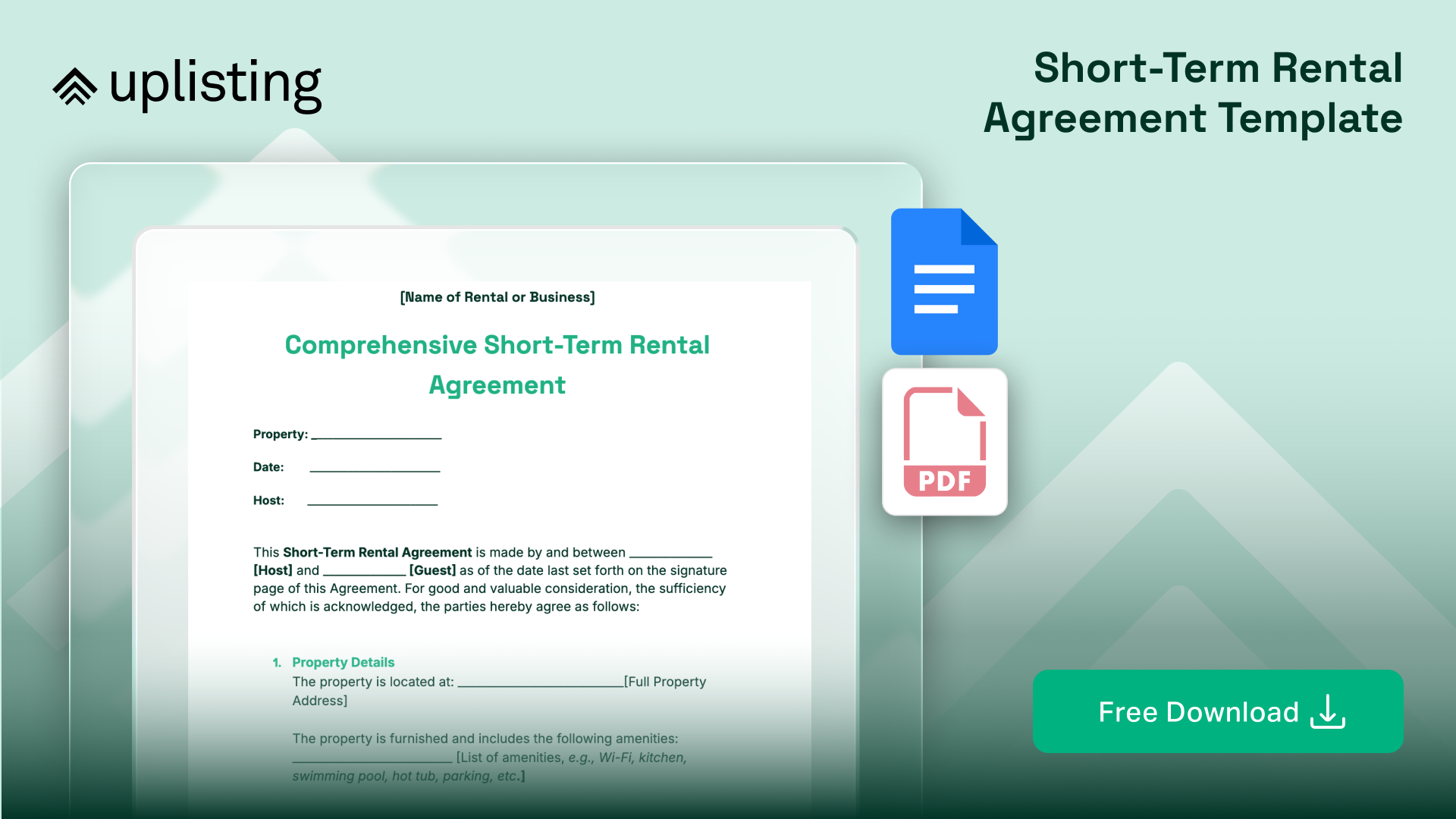


.png)

